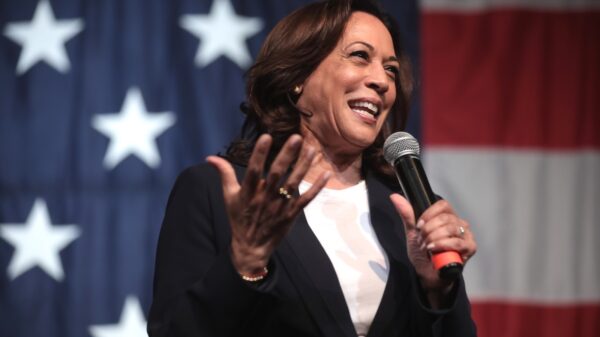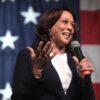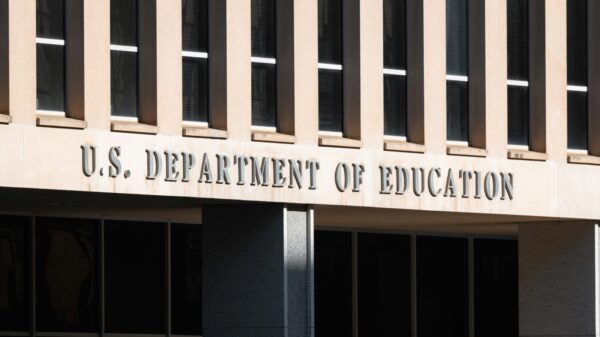The Nigerien military junta, or as they refer to themselves, the National Council for the Safeguarding of the Fatherland, seized power of the Republic of Niger in a coup d’état, overthrowing President Mohamed Bazoum.
Marking the seventh coup in the Sahel region of Africa in three years, General Abdourahmane Tchiani, the commander of Niger’s presidential guard, proclaimed himself the country’s new leader. Bazoum and his family have since been under house arrest in the presidential compound in the capital, Niamey.
The junta has also announced its plan to prosecute ousted President Bazoum for “high treason,” and has faced international and regional pressure to release and restore Bazoum.
“According to Nigerien protesters, there are several reasons for Bazoum’s removal,” said Komlan Kwassi Agbovi, an associate professor of sociology at the University of Lomé in Togo.
“The first reason is related to chaotic management [as] it seems he doesn’t govern for the people of Niger, but for the metropolises and Western countries. Secondly, when the soldiers on the frontlines against jihadists capture some of them and imprison them, Bazoum has released them, which gives the impression he is in collusion with the jihadists,” Agbovi said.
Agbovi highlighted the importance of the historical marginalization and economic exploitation African nations have endured as a contributing factor to the activity in Niger and across the continent. He believes such subjugation creates the impression that African nations are still under the control of the West and the metropolises.
“It must be acknowledged that today there is an African renaissance, and it is mostly the militaries that are making efforts to establish authority in front of Africa and the West. For many decades, even centuries, we have been trampled upon [and] we’ve gained independence, but it excludes financial and economic freedom,” Agbovi said.
Following the coup, which has been ongoing since July 26, West African leaders from the Economic Community of West African States (ECOWAS) escalated their response by calling for the activation and deployment of a standby force to counter the junta in order “to restore constitutional order in the Republic of Niger,” according to ECOWAS Commission President Omar Alieu Touray.
ECOWAS had previously granted the Nigerien junta a seven-day ultimatum to restore Bazoum, threatening potential military intervention if the request was not met. The junta has since closed the country’s airspace after defying the Aug. 6 deadline.
A group of Nigerian Islamic scholars met with General Abdourahamane Tchiani in Niger on Aug. 12, under the approval of ECOWAS Chairman and Nigerian President Bola Tinubu who is exploring options for a peaceful resolution. The scholars, led by Sheikh Abdullahi Bala Lau, announced that Tchiani would hold direct talks with ECOWAS leaders to remedy the situation.
The junta has expressed its willingness to find a peaceful resolution. Ali Mahamane Lamine Zeine, the recently appointed prime minister of the junta, said to Reuters, “we are in a process of transition. We have explained the ins and outs, reiterated our willingness to remain open and to talk to all parties, but we have insisted on the need for the country to be independent.”
Both sides are looking towards a peaceful resolution; however, “no option is taken off the table, including the use of force as a last resort,” said Tinubu to the New York Times.
There is fear that a potential military invasion from ECOWAS could cause regional conflict and worsen relationships as military leaders from neighboring countries Mali and Burkina Faso have expressed their acknowledgment and support of the new military leadership in Niger. ECOWAS country members Senegal, Benin, and Côte d’Ivoire have stated they will send troops for military intervention against Niger’s coup leaders.
“The response to the coup d’état is somewhat mixed as a significant portion of Nigerien society approves because of what is happening in the Sahel region. It’s a revolution that aims to restore African dignity, and the youth are completely in agreement,” Agbovi said.
“We don’t need coups for the governance and proper management of a country, however, there is a certain economic, financial, social, cultural and even religious revolution happening within the youth today,” he continued.
Dr. Phiwokuhle Mnyandu serves as the assistant director of the Center for African Studies at Howard and agrees that African youth have a unique perspective of democracy, economic development and political activity on the continent.
“On the ground, we’re seeing the drawing of the lines in the sand, as international stakeholders often talk about the African population being young, right? In West Africa, the youth population is more significant,” Mnyandu said.
As a landlocked Sahelian country of approximately 27.3 million people, Niger has the third fastest population growth rate in the world (3.8%) as reported by the United Nations Children’s Fund (UNICEF) and the World Population Review. In Niger, young people represent the majority of the population as 58.2% of Nigeriens are under the age of 18.
According to the Population Reference Bureau, young Africans are expected to make up 42% of the world’s youth and will account for 75% of those under age 35 in Africa by 2030.
Mnyandu explained that younger generations naturally express themselves differently, and on the African continent, some young adults are in political situations or military positions and seek corrective action to improve their nation.
“With youth comes impatience and irreverence for convention, so you’re not restrained by the circumspection that can limit the effectiveness of older leaders” Mnyandu continued.
He mentioned that internationally, especially in Africa, we are seeing a divergence of views regarding what democracy is and what it should give people.
“What are the deliverables of democracy? Should it merely be ‘elections and peace’ with the economy just humming along as it has throughout the last 60 years? Or does democracy also mean economic and social development with respect for customs and minority rights?” he rhetorically asked.
Recently, Tchiani sent a delegation, headed by his defense chief General Moussa Salaou Barmou, to Conakry, Guinea’s capital, for “stronger support to face the challenges ahead” as well as to showcase the Guinean leader’s support and newfound alliance.
“We are Pan-African,” Guinea’s interim president, Mamady Doumbouya, said at the meeting. “When our people have problems, we are always present, and we will always be there,” however, Doumbouya has not publicly expressed military intervention support for Niger.
Agbovi noted that a Pan-African conglomerate among West African states has potential but will depend on the intent of political leaders. He explicitly mentioned that African presidents would need to set aside their egos and prioritize the interests of Africa, in lieu of Western nations.
“A Pan-African union among African states can succeed, and the essential factor is that our presidents have just a small sense of common interest [and] defend the interests of the African population as opposed to the interests of the West,” Agbovi explained.
As of now, no military intervention has taken place. Last week the African Union’s Peace and Security Council met with ECOWAS delegates in Addis Ababa to discuss the situation in Niger. The African Union has since distanced itself from ECOWAS and rejected military intervention in Niger.
The most effective retaliation to the coup has been the travel and economic sanctions imposed on Niger by ECOWAS, which has frozen all commercial and financial activities between its member countries and Niger and Nigerien assets held in regional central banks. Nigeria has also cut off electricity supplies, and neighboring ECOWAS countries have closed their land borders, blocking imports into the landlocked Niger.
“Considering Pan-Africanism, it’s good for African countries to look at themselves as nations that have different players and interests, because some proclaim Pan-Africanism, but are on different sides of the coin,” Mnyandu said.
“Nigeria has its interests: it wants that pipeline going to Europe to not be diverted because that’s money. That pipeline basically promises to give European countries relief from relying on Russia for their needs in a time of war in Ukraine,” he continued.
The coup is also gaining international attention and support for a resolution. Mali’s military leader Assimi Goita spoke to Russian President Vladimir Putin on the phone. Goita reflected on Putin’s advice as he, “stressed the importance of a peaceful resolution of the situation for a more stable Sahel,” according to the recap he later posted on X, formerly known as Twitter. Russia has built and strengthened its relationship with Mali and Burkina Faso, two other former French colonies that have also recently experienced military overthrows.
Since the late July coup, support for Russia has grown in Niger, with anti-French sentiment rising as junta supporters have been seen waving Russian flags at several rallies. France’s access to the country’s uranium resources for energy, military bases, and the maintenance of Françafrique policies has fueled this new wave.
France and the European Union have since called for the “immediate return to the Nigerien constitutional order” and suspended aid to Niger.
“France has a comprehensive set of interests and motivation for what it calls ‘France Afrique’ regarding Francophone Africa and its former allies [or colonial territories],” Mnyandu explained.
The U.S. Secretary of State Antony Blinken has been vocal on the U.S. ‘support for a peaceful solution following ECOWAS’ approval of a “standby” military force. The new U.S. ambassador to Niger, Kathleen FitzGibbon, is expected to arrive in Niger before the end of August, marking the first time the U.S. has had an ambassador in the country in two years.
ECOWAS’ commissioner for political affairs, peace, and security, Abdel-Fatau Musah, stressed that using force would be the final option if diplomatic attempts proved unsuccessful at an ECOWAS meeting in Accra, Ghana.
“If push comes to shove, we are going into Niger with our own contingents and equipment and our own resources to make sure we restore constitutional order,” Musah said.
Copy edited by Alana Matthew











